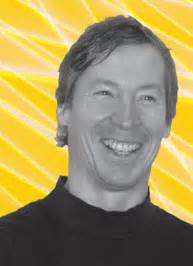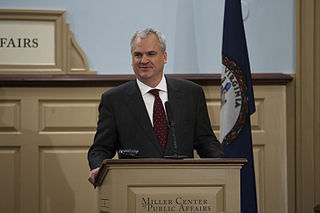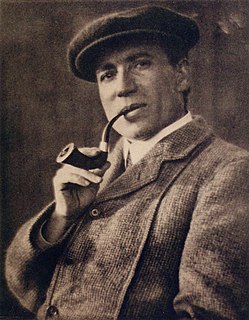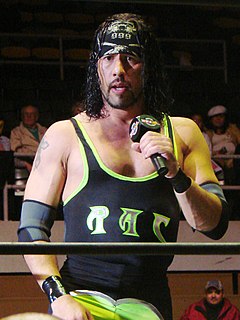A Quote by Colin Neenan
Life just seems so full of connections. Most of the time we don't even pay attention to the depth of life. We only see flat surfaces.
Related Quotes
From the simplest lyric to the most complex novel and densest drama, literature is asking us to pay attention. Pay attention to the frog. Pay attention to the west wind. Pay attention to the boy on the raft, the lady in the tower, the old man on the train. In sum, pay attention to the world and all that dwells therein and thereby learn at last to pay attention to yourself and all that dwells therein.
The life of a creator is not the only life nor perhaps the most interesting which a man leads. There is a time for play and a time for work, a time for creation and a time for lying fallow. And there is a time, glorious too in its own way, when one scarcely exists, when one is a complete void. I mean-when boredom seems the very stuff of life.
Maybe it's all utterly meaningless. Maybe it's all unutterably meaningful. If you want to know which, pay attention to what it means to be truly human in a world that half the time we're in love with and half the time scares the hell out of us. Any fiction that helps us pay attention to that is religious fiction. The unexpected sound of your name on somebody's lips. The good dream. The strange coincidence. The moment that brings tears to your eyes. The person who brings life to your life. Even the smallest events hold the greatest clues.
Sometimes we make decisions because it seems to be the only path visible at the moment. It's only later that we see there was more than one path, but the others were blocked from our vision at the time. That's the thing with hindsight, you see. Even if you can see it clearly, there's no going back. It's at that point we need to turn around and stare ahead and make a new life.
What is this life if, full of care,
We have no time to stand and stare.
No time to stand beneath the boughs
And stare as long as sheep or cows.
No time to see, when woods we pass,
Where squirrels hide their nuts in grass.
No time to see, in broad daylight,
Streams full of stars, like skies at night.
No time to turn at Beauty's glance,
And watch her feet, how they can dance.
No time to wait till her mouth can
Enrich that smile her eyes began.
A poor life this if, full of care,
We have no time to stand and stare.
There is a close relationship between a house full of possessions and a heart full of desires, between a cluttered closet and a crowded schedule, between having no place to put possessions and having no priorities for our life. These are precious clues. They remind us to slow down, to live in the present, to reduce the desires that drain our vitality, to clarify priorities so we can give our time and attention to what matters most. Tragically, in the press of modern life, we have managed to get backwards one of life's most vital truths: people are to be loved; things are to be used.
Eventually we realize that not knowing what to do is just as real and just as useful as knowing what to do. Not knowing stops us from taking false directions. Not knowing what to do, we start to pay real attention. Just as people lost in the wilderness, on a cliff face or in a blizzard pay attention with a kind of acuity that they would not have if they thought they knew where they were. Why? Because for those who are really lost, their life depends on paying real attention. If you think you know where you are, you stop looking.


































